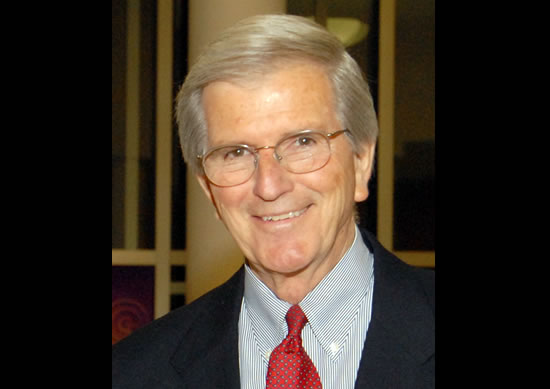GUEST EDITORIAL
Where is the Public for Public Education?
By Dr. David Mathews, CEO, Kettering Foundation

Dr. David Mathews, CEO, Kettering Foundation
Schools are opening all across the country for a new academic year. Educators are very busy, maybe too busy. They may feel like they need more help from the communities they serve. The Kettering Foundation has some research that is relevant. Perhaps now is a good time to look at it again.
Kettering research has found that a number of Americans no longer feel that the public schools are really their schools. The reason is that they don’t believe they can make a significant difference in improving the schools. They describe themselves as outside looking in, except for minor roles as volunteers. They don’t have a sense of ownership. Without it, they expect others—namely educators—to take all responsibility. That leaves schools isolated and without the reinforcement they need to do all that needs doing. When there is a sense of public ownership, communities are available to help educate and solve problems that schools alone can’t solve, especially problems that come from outside the classroom.
The key to engaging a public that will take responsibility is to broaden the focus from the school alone to communities and what they can do to develop young people into productive adults. Communities can stimulate learning, which includes learning outside the classroom as well as in. And people believe that even though they can’t “school,” they can educate. When all citizens do what they can to educate, it becomes everyone’s responsibility, and everyone—the community itself—becomes accountable. Taken to its logical conclusion, there should be a community strategy, not just a school strategy, for meeting the myriad challenges of education.
A community strategy is only possible, however, where there is a public capable of taking on the responsibilities that ownership implies. A responsible public is made up of citizens who join forces to make collective decisions and take collective actions. This public work is done by citizens not just for them. Public work builds a responsible public in a community, just as playing baseball turns a group of individual athletes into a team.
One of the payoffs from public work has been to recast issues initially seen as school problems so the community dimensions become visible. This happened in a school district that had received a grant for adding a sex education course to the curriculum. As you might expect, this ignited a polarizing controversy in the community. With the help of their state organization, the district school board responded by holding public forums to look into the problem. It turned out that most people weren’t as upset about sex education in the schools as they were about the high rates of teenage pregnancy in the community. That problem had been masked by the debate framed around sex education. In the forums, citizens renamed the issue to reflect the community’s broader concerns, which made the community at large, not just the schools, accountable. When that happened, a number of community organizations began working to address teenage pregnancy.
Community strategies may seem like going the long way around a pressing problem. Yet they can shift some of the burden from educators to communities. Citizens become accountable as they work together to produce things (beginning with redefining problems) because we all usually take more responsibility for what we have made than for what has been made for us. And this work rebuilds a public for public education.#
David Mathews is president of the Charles F. Kettering Foundation. He served as U.S. Secretary of Health, Education, and Welfare in the Ford administration and as president of The University of Alabama. More on this subject can be found in his book, Is There a Public for Public Schools, which is available from the Kettering Foundation Press.
